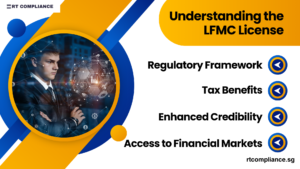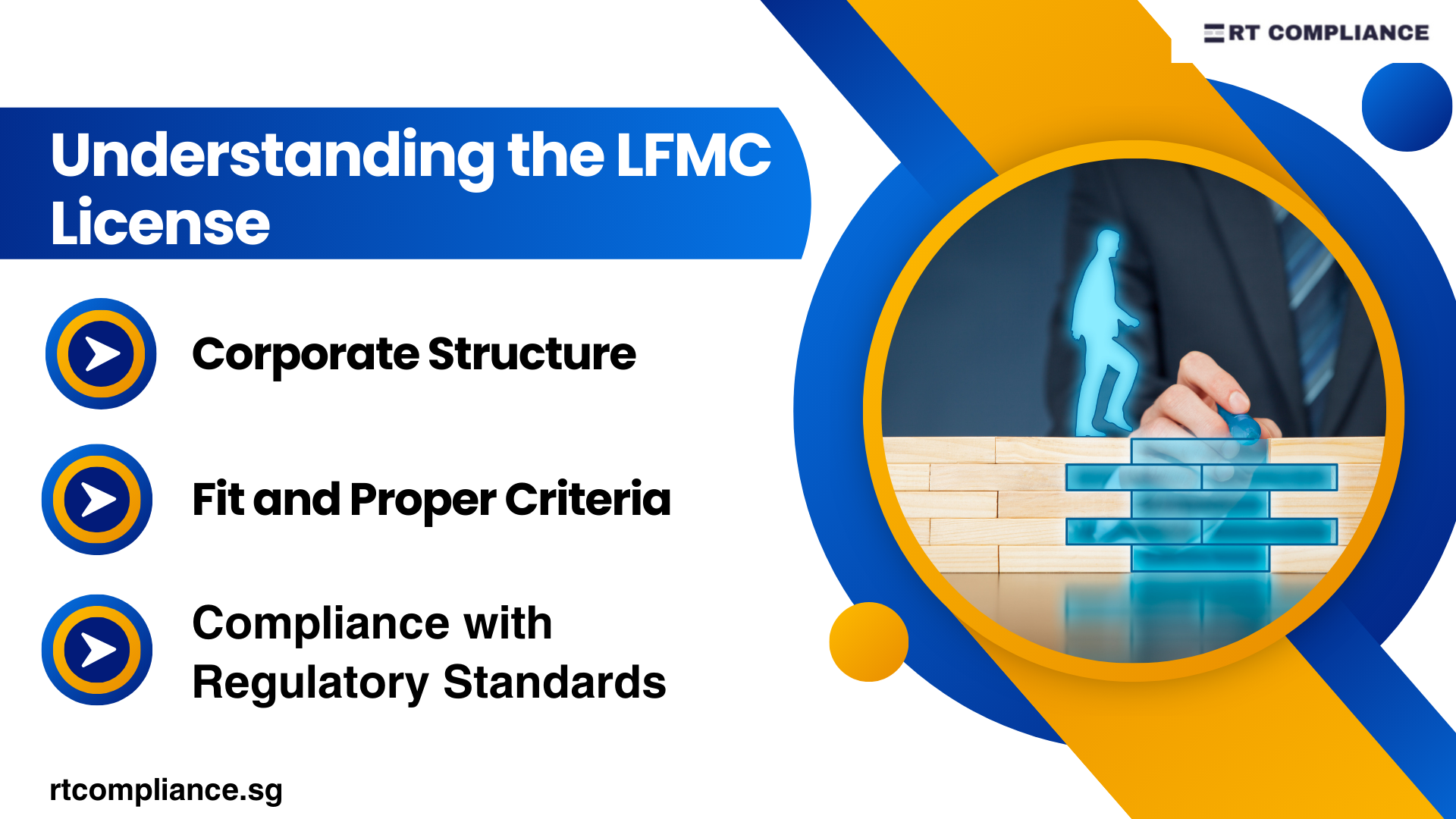Singapore is known for its robust financial sector and business-friendly environment, attracting numerous local and international firms to establish their presence in the country. To regulate and supervise financial activities effectively, Singapore’s Monetary Authority has implemented various licenses for different types of financial services. One such license is the Labuan Financial Services and Securities Act (LFMC) License, which caters to entities looking to conduct specific financial activities. In this comprehensive guide, we will explore the LFMC License in Singapore, its benefits, eligibility criteria, application process, and key considerations for potential applicants.
What is the LFMC License in Singapore? Overview for Fund Management Companies
The LFMC License is regulated by the Monetary Authority of Singapore (MAS) and falls under the Labuan Financial Services Authority (Labuan FSA). This license allows companies to provide financial services and carry out financial activities in Singapore, subject to the guidelines and regulations set forth by the MAS and Labuan FSA. The LFMC License is particularly suitable for entities seeking to engage in activities such as fund management, insurance, banking, leasing, or any other financial services approved by the authorities.
Benefits of the Singapore LFMC License for Fund Managers
2.1 Regulatory Framework under MAS and Labuan FSA:
The LFMC License ensures compliance with the robust regulatory framework established by the MAS and Labuan FSA. This provides a strong foundation for businesses to operate in a secure and well-regulated financial environment.
2.2 Access to Singapore’s Financial Markets:
With an LFMC License, companies gain access to Singapore’s extensive financial markets, which are renowned for their depth, liquidity, and stability. This allows businesses to tap into various investment opportunities and expand their market presence.
2.3 Enhanced Reputation and Credibility for Licensed Fund Management Companies:
Obtaining an LFMC License enhances the credibility and reputation of a financial services provider, as it signifies adherence to stringent regulatory standards. This can attract clients and investors who prioritize working with reputable and compliant institutions.
2.4 Attractive Tax Benefits for LFMC License Holders in Singapore:
The LFMC License also offers attractive tax benefits, including exemptions on certain types of income derived from qualifying financial activities. These tax incentives contribute to cost savings and improve the overall financial viability of licensed entities.
Eligibility Criteria for LFMC License in Singapore
To qualify for an LFMC License, applicants must fulfill certain eligibility criteria, which may vary depending on the nature of the financial services they intend to provide. Some common requirements include:
3.1 Corporate Structure Requirements:
Applicants must establish a legal entity in Singapore, such as a private limited company, to operate under the LFMC License. The company must have a physical office presence in Singapore and maintain a certain level of paid-up capital, as stipulated by the authorities.
3.2 Fit and Proper Criteria for Key Individuals Criteria:
Key individuals within the company, such as directors and shareholders, must meet the fit and proper criteria outlined by the MAS. This includes possessing relevant qualifications, experience, and demonstrating good character and integrity.
3.3 Compliance with MAS and Labuan FSA Regulatory Standards:
Applicants must demonstrate their ability to comply with the regulatory standards set by the MAS and Labuan FSA. This involves implementing robust internal controls, risk management frameworks, and having adequate policies and procedures in place.
How to Apply for an LFMC License in Singapore
The application process for an LFMC License involves several stages, which typically include the following steps:
4.1 Pre-application: Engage Experts in Fund Licensing
Applicants are advised to engage with professional service providers who specialize in financial licensing to ensure a smooth and efficient application process. This stage involves conducting due diligence, preparing necessary documentation, and refining the business plan.
4.2 Submission and Evaluation by MAS:
The completed application, along with the required supporting documents, should be submitted to the MAS for evaluation. The MAS will assess the application based on factors such as the applicant’s financial strength, compliance track record, and business viability.
4.3 On-site Visit and Interview for LMFC Singapore:
Upon successful evaluation of the application, the MAS may conduct an on-site visit to assess the applicant’s operational capabilities, infrastructure, and compliance with regulatory requirements. Additionally, an interview may be conducted to clarify any outstanding queries.
4.4 MAS Approval & Post-License Obligations for LFMC Holders:
If the application is deemed satisfactory, the MAS will issue the LFMC License. Post-license, license holders are expected to meet ongoing regulatory requirements, including regular reporting, compliance audits, and maintaining adequate financial resources.
Key Considerations Before Applying for LFMC License in Singapore
Before applying for an LFMC License, potential applicants should consider the following factors:
5.1 Market Analysis for Fund Management in Singapore:
Conducting a comprehensive market analysis helps determine the viability and potential competitiveness of the proposed financial services within the Singapore market.
5.2 Compliance & MAS Reporting Obligations:
Operating under an LFMC License involves costs associated with regulatory compliance, such as hiring compliance officers, implementing robust systems, and ongoing reporting obligations. Applicants should assess these costs and factor them into their business plan.
5.3 Adapting to Regulatory Changes by MAS Singapore:
Keeping abreast of regulatory changes and evolving compliance requirements is essential to ensure ongoing compliance and to adapt business strategies accordingly.
Conclusion:
The LFMC License in Singapore offers a gateway for companies to establish a presence in the country’s thriving financial sector. By adhering to the stringent regulatory framework and benefiting from various advantages such as access to financial markets, tax incentives, and enhanced credibility, licensed entities can leverage the opportunities available and contribute to Singapore’s vibrant financial landscape. However, it is crucial to understand the eligibility criteria, application process, and ongoing compliance obligations to make informed decisions and maximize the benefits associated with the LFMC License.






